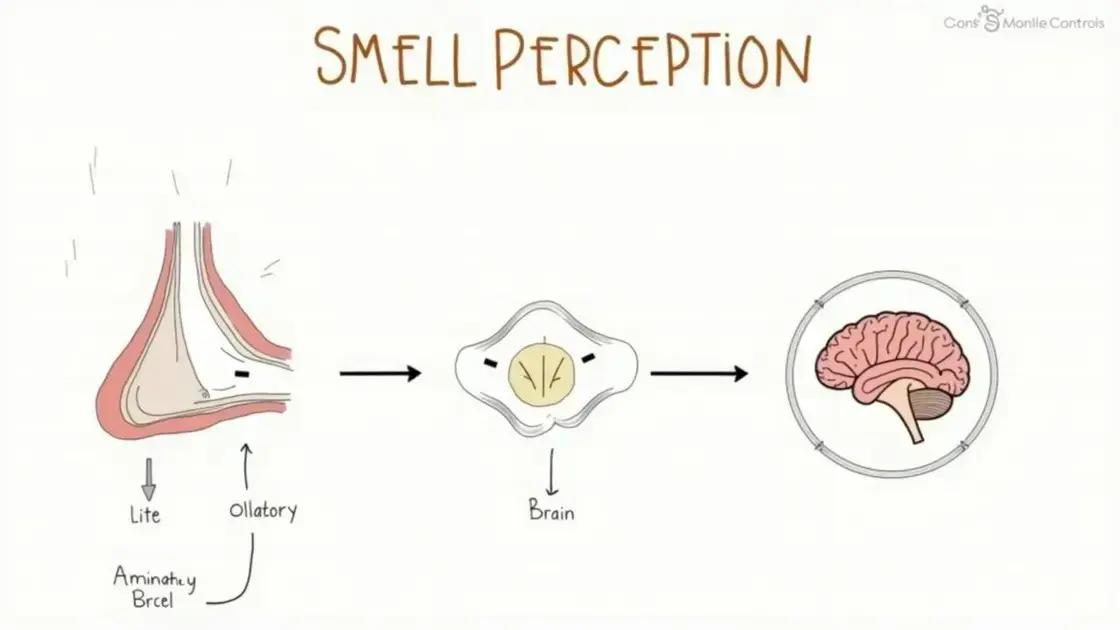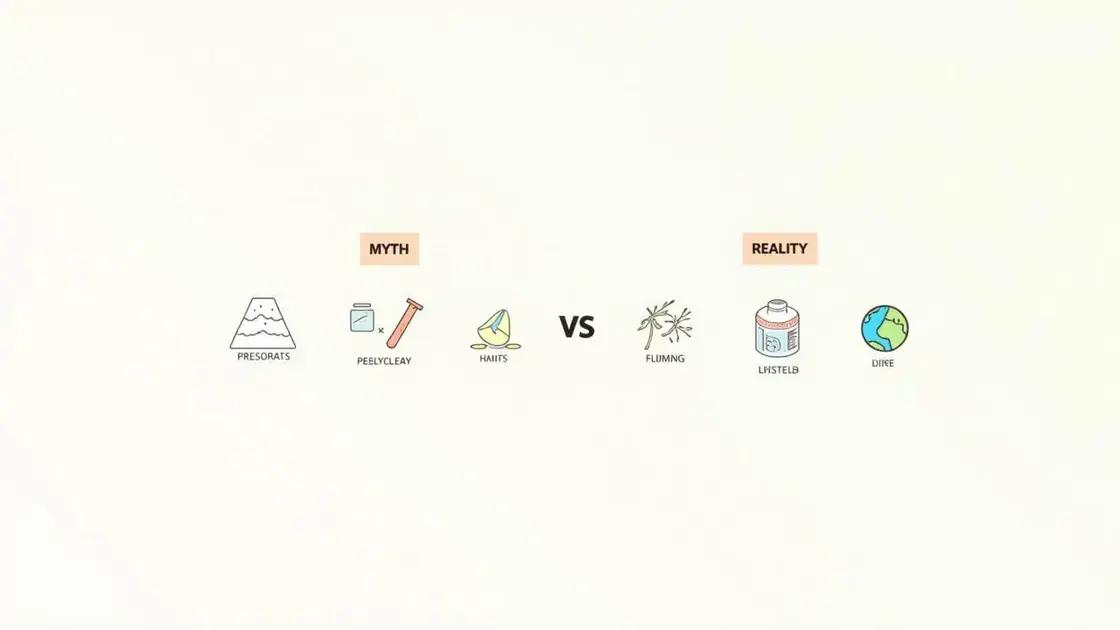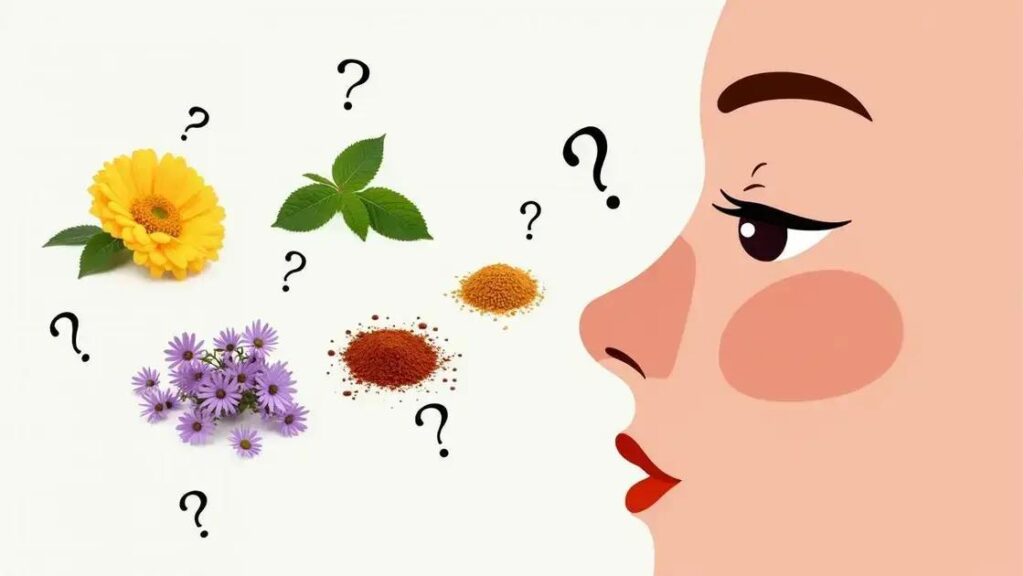The Smell Trick phenomenon explores how scents influence our emotions, memories, and behaviors, revealing the power and importance of our sense of smell in daily life, debunking myths, and providing insights into its psychological and marketing applications.
Ever wondered if the Smell Trick is a myth or reality? You’re not alone! Many people are fascinated by how our sense of smell influences perceptions, emotions, and even memories. This article delves into the science of smell, sharing intriguing insights about how tricks of the nose can affect us. We’ll discuss real-life experiences, analyze scientific findings, and debunk the myths surrounding this curious phenomenon. Join us as we explore the captivating world of smell!
Understanding the Smell Trick Phenomenon

The Smell Trick phenomenon refers to the intriguing ways our senses interact and influence our perceptions. At its core, this phenomenon suggests that what we smell can alter how we experience the world around us. For instance, certain scents might evoke strong memories or feelings, creating powerful emotional responses.
How Smells Affect Us
Scientists have found that our sense of smell is directly linked to the brain’s limbic system, which governs emotions and memories. This means that when we encounter a specific scent, it can trigger vivid memories from our past, even if we are not consciously aware of it. This connection is why certain smells can make us feel nostalgic or happy.
The Role of Context
The Smell Trick is also influenced by context. For example, the same scent can evoke different reactions depending on the situation or environment in which we experience it. A fresh baked cookie aroma might remind someone of home, warming their hearts. Conversely, that same smell might remind another of an unpleasant experience, leading to negative feelings.
Examples of Smell Tricks
Common examples of this phenomenon include associating the smell of lavender with relaxation or the scent of citrus with energy. Marketers often use smell tricks in retail settings, applying pleasant scents to enhance shopping experiences and encourage spending. Understanding these tricks helps us be more aware of how smell impacts our daily lives and decisions.
Why This Matters
Recognizing the power of smell can help individuals and businesses harness its potential. By creating environments infused with positive fragrances, we can enhance mood, productivity, and overall well-being. The Smell Trick is not just a whimsical idea; it’s a science-backed reality that influences our lives every day.
Scientific Insights into Smell Perception

Understanding how we perceive smells involves both biology and psychology. Our noses contain sensory receptors that detect odor molecules in the air. When these molecules bind to receptors, they send signals to the brain, specifically the olfactory bulb.
The Science Behind Smell
The olfactory bulb processes these signals and channels them to various parts of the brain. This includes the limbic system, which plays a key role in emotions and memory. Interestingly, smell is the only sense that bypasses the thalamus, making it a unique pathway directly into our emotional brain.
Factors Influencing Smell Perception
Numerous factors can affect how we perceive smells. Genetic variations can influence the number and type of olfactory receptors a person has, which can lead to differences in scent sensitivity. Additionally, age and gender can also impact smell perception, with studies showing that women often have a heightened sense of smell compared to men.
Research Insights
Studies have demonstrated that our experiences and environments shape how we perceive scents. For example, participants exposed to negative or anxiety-inducing environments may interpret the same smell differently than in a positive setting. This means that smell perception is deeply intertwined with emotional context.
Implications of Smell Perception
Understanding the complexities of smell perception has implications beyond personal experiences. Businesses utilize these insights, such as marketing strategies that involve scent marketing in retail to create pleasant shopping atmospheres. This helps consumers feel more relaxed and may increase their purchasing decisions.
Real-life Experiences with Smell Tricks

Real-life experiences with smell tricks can be fascinating and diverse. Many people report strong emotional reactions tied to specific scents. For instance, the smell of fresh popcorn may remind someone of fun movie nights with friends, creating feelings of joy and nostalgia.
Personal Stories
Numerous individuals share stories about how certain fragrances enhance their daily lives. One person mentioned how the scent of freshly baked bread triggers happy memories of family gatherings during the holidays. This emotional trigger enhances their overall mood when they smell bread baking.
Marketing Examples
Retailers also use smell tricks to influence shopping experiences. For example, a clothing store may use scents like vanilla or sandalwood to create a cozy atmosphere. Customers often report feeling relaxed and spend more time in the store, leading to increased sales. Smells can even prompt people to buy products impulsively.
Food and Scent Connection
In the culinary world, scents play a crucial role. Chefs often talk about how the aroma of spices can evoke certain feelings or even memories in diners. For instance, the scent of curry may remind someone of travels in India, creating a deeper connection to the meal. This shows how the sense of smell enhances culinary experiences.
Scientific Findings on Experiences
Studies have shown that our experiences with specific scents influence our behavior. Researchers found that pleasant smells can make people more generous and increase their willingness to help others. In contrast, negative smells create discomfort and may lead to avoidance behavior. This highlights the powerful effect of scent on our interactions and emotions.
Debunking Common Myths Related to Smell

Many myths surround the sense of smell, leading to misconceptions about its functions and effects. One common myth is that humans have a poor sense of smell compared to other animals. In reality, while our sense of smell may not be as developed as that of dogs, it is still quite powerful and plays a significant role in our daily lives.
Myth 1: Humans Have No Sense of Smell
This myth understates our olfactory abilities. Studies reveal that humans can distinguish over a trillion different scents, making our sense of smell more impressive than many people realize.
Myth 2: Smell Loss is Normal with Age
Some believe that losing the ability to smell is a natural part of aging. Although some diminish over time, significant smell loss can indicate medical conditions and should not be ignored. It’s essential for older adults to maintain regular check-ups to track olfactory health.
Myth 3: Perfume Smells the Same on Everyone
This myth suggests that a perfume will smell identical on everyone. However, fragrances can change based on an individual’s skin type, body chemistry, and even diet. What smells delightful on one person might not have the same effect on another.
Myth 4: Smells Can Evoke Memories Instantly
While smells can certainly trigger memories, not every scent brings back vivid recollections. The effectiveness of scent in evoking memories varies from person to person. Emotional context and personal experiences play a large role in how smells affect remembrance.
Myth 5: Smelling Something Can Physically Change You
Some people believe that smelling certain scents, like lavender or peppermint, can instantly alter mood or energy levels. While scents can influence emotions, the effect varies among individuals and is not always immediate or dramatic.
Final Thoughts on the Smell Trick Phenomenon
The exploration of smell tricks reveals how our sense of smell is more powerful and complex than many realize. It influences our emotions, memories, and even our behaviors in significant ways.
By understanding the science behind our olfactory perceptions, we can appreciate the rich tapestry of experiences that scents provide. Furthermore, debunking common myths assists in enlightening individuals about the real capabilities of their sense of smell.
Ultimately, recognizing how smell truly affects our lives can open new avenues for personal growth, enhanced wellbeing, and innovative marketing strategies. Harnessing the power of scent can effectively enrich our daily experiences.
FAQ – Frequently Asked Questions about Smell Tricks
What exactly is a smell trick?
A smell trick refers to the phenomenon where scents influence our emotions, memories, and perceptions in unexpected ways.
Can smell tricks really affect my mood?
Yes, certain smells can evoke specific emotions or memories, leading to changes in mood and behavior.
Are there any myths about the sense of smell?
There are many myths surrounding smell, such as the belief that humans have a poor sense of smell. In reality, our olfactory abilities are quite strong.
How does age affect the sense of smell?
While some decline in olfactory function can occur with age, significant loss of smell is not a normal part of aging and should be checked by a doctor.
Can perfumes smell the same on everyone?
No, perfumes can smell different on individuals due to factors like skin type and body chemistry.
How do smells impact shopping experiences?
Retailers use scents to create inviting atmospheres, which can encourage customers to stay longer and increase their likelihood of making purchases.













